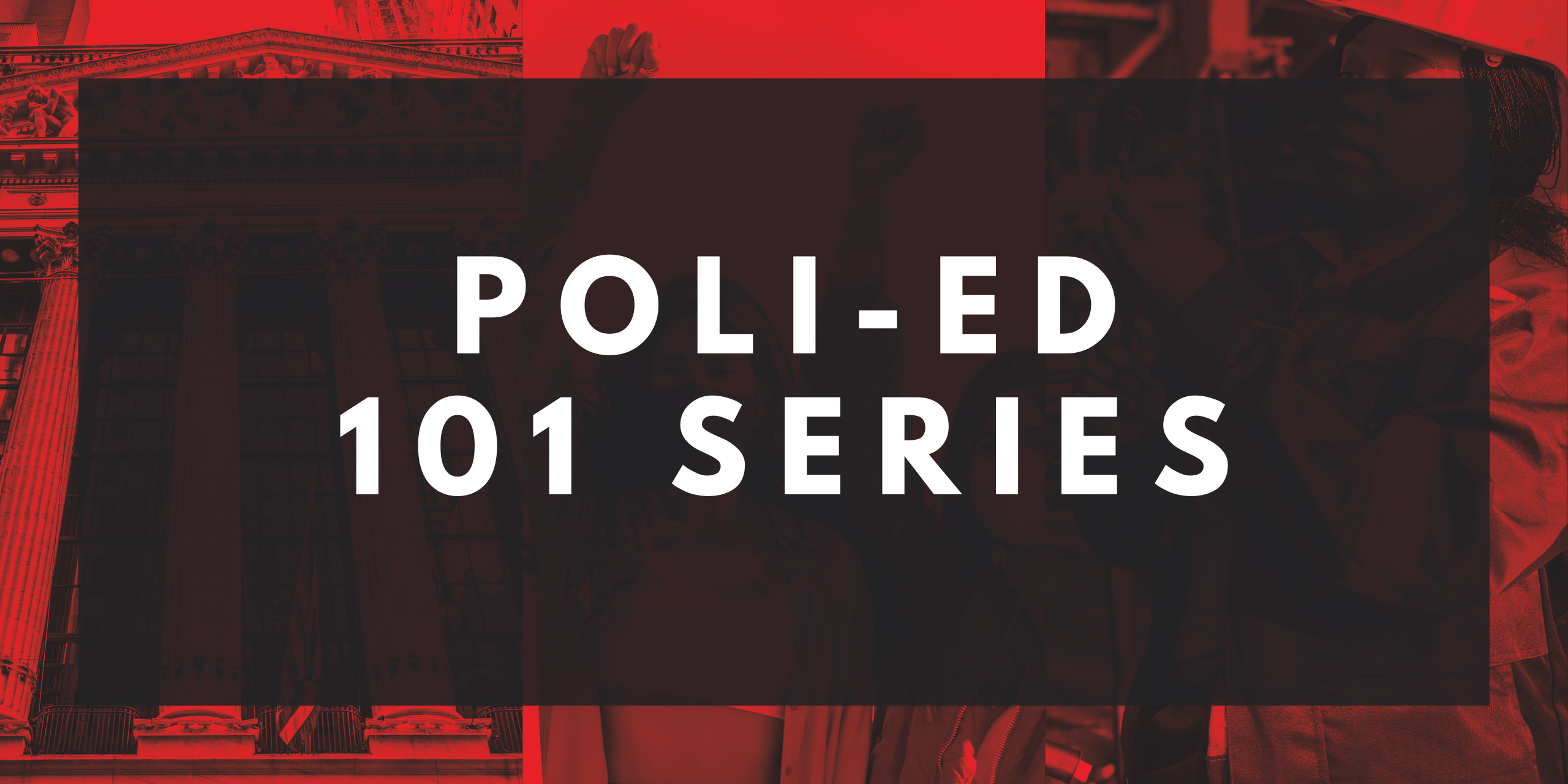Poli-Ed 101: Module 2 – What is Socialism?
“What is Socialism?” is the second module in our 3-Part DSA Political Education 101 Series. The readings have been selected to highlight DSA’s fundamental political analysis and key political questions so that we can use them as the core of our political education work in order to equip all DSA members with a common base of knowledge to apply to our organizing efforts. Each of the readings contain particular political points of view and members are encouraged to critically engage especially where they may raise fruitful debates.
—-
This module has two related goals. The first is to discuss why socialists aim to replace capitalism with an entirely different system called “socialism,” rather than reforming capitalism to make it better for working people. The second is to consider what the system of socialism is that we are working to achieve. While it is not possible to specify the details of a future socialism in advance, we must develop a vision of a plausible socialist alternative to capitalism that can inspire masses of working people to go beyond capitalism.
Ever since ancient times, there have been people fighting for more equality, democracy, and social justice. But the modern political doctrine of socialism and the movements associated with it only emerged in the last few centuries. Since then, socialists contributed to winning voting rights, minority rights, worker rights, progressive taxation, welfare states, and the overthrow of colonial rulers. Still, we confront an unjustly unequal world between and within countries.
The legacy of the Red Scare and Cold War in America, when socialists and communists were purged from public life and official positions, means that a new generation of activists are redefining socialism. But we insist that it means more than just a new New Deal: workers must own the means of production and run society for themselves.
Socialism cannot be accomplished by philosophers or scientists. The working class can only come to power by its own patient efforts. This will require vibrant social movements, a militant labor movement, strong and democratic socialist organizations like DSA, and elected officials advocating our politics to the public and denouncing the hypocrisy of the ruling class. And we must focus not only on the unfair economic aspects of our capitalist system, but also the legal disenfranchisement of so many in our society and the structural racism that comes with it.
The three readings present several arguments about socialism. While socialists fight to win immediate improvements for working people and other oppressed groups, that is not enough. Socialists engage in reform struggles while working toward replacement of capitalism by a different system. Socialists seek to influence current state policies and eventually win full power for working people, which requires building popular power outside as well as inside the state.
To build a powerful socialist movement, we must offer a vision of the alternative socialist society we aim to build. The core idea is a society that empowers the people in the economy and the state. Economic planning must be organized so that the economy responds to people’s needs and wants in an environmentally sustainable way. Workers will have a big say in decisions at work. With no class of wealthy owners of enterprises, there will no longer be class conflict between capital and labor. However, there will be conflicts of interest among some groups such as workers, consumers, and community members, which should be resolved in ways that are acceptable to all groups. Potential conflicts between the wishes of people living in one location and the needs of society as a whole will be resolved through negotiation and compromise.
Socialists debate some questions about a future socialism: What role should buying and selling in markets, which is central to capitalism, play in a socialist economy? How can the negative effects of market competition as it exists in capitalism be avoided in a socialist society? How can the burden of labor be shared equitably in a socialist system? How can democracy and individual liberty be guaranteed in a future socialism?
The readings for this module are:
-
-
Democratic socialism, explained by a democratic socialist (4 pages, 3 minute read)
- Building Socialism from Below: Popular Power and the State (10 pages, 25 minute read) – You can watch this 12 minute video featuring the writer, Ben Tarnoff, explaining the basic argument in this reading.
-
Socialism for Realists (11 pages, 35 minute read) – If you are not able to finish this article, you can check out this helpful summary of the main arguments of the article (1 page, 3 minute read)
-

